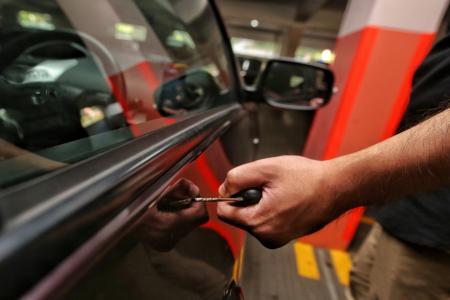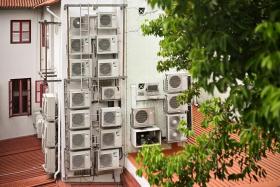Ex-director fined $558,000 for falsifying statements on export certificates: Customs
A 41-year-old former director was fined $558,000 for faking statements on the export of some $9.72 million worth of goods, in order to benefit from preferential tariff treatment.
In a statement on Tuesday (Aug 30), the Singapore Customs said Solaiyappan Ramanathan pleaded guilty on Monday to two charges under the Regulation of Imports and Exports Regulations.
Another six charges were taken into consideration during sentencing.
Solaiyappan, a Singapore permanent resident, held a directorship at Feccuni Singapore and was the sole proprietor of Shakambri Overseas.
He set up these companies to trade in scrap metals and other metal products sourced from local and overseas suppliers.
From August 2017 to April 2019, he imported scrap metals from China and re-exported them from Singapore to India.
He applied for 137 preferential certificates of origin (PCOs) for the export of the goods to India.
These certificates offer preferential tariff treatment under the India-Singapore Comprehensive Economic Cooperation Agreement and Asean-India free trade in goods agreement.
Singapore Customs began investigating Solaiyappan after it received information alleging that Feccuni had issued false statements about the country of origin of the scrap metals in the PCOs.
The statement added that the scrap metal was from China, but Solaiyappan had falsely stated on the PCOs that they were from Singapore, knowing that the preferential tariff would apply only for goods manufactured or wholly obtained in Singapore.
Customs also revealed that Solaiyappan had been approached by a Malaysian to use Feccuni as an exporter for shipping scrap metals to India.
In return, Feccuni would earn commission for every PCO.
This was done as buyers in India had expressed interest in the preferential tariff treatment.
While his company was not involved in any transaction between the Malaysian and Indian buyers, Solaiyappan created invoices bearing Feccuni's name and submitted them for PCO applications.
This, the statement said, was done to give the impression that the scrap metals sold by Feccuni were of Singapore origin, though they were from China.
Under the Regulation of Imports and Exports Regulations, any person found guilty of providing false statements to the issuing authority to obtain preferential tariff treatments can be jailed for two years, or be fined the higher of a sum of up to $100,000, or three times the value of the goods involved, or both.
Get The New Paper on your phone with the free TNP app. Download from the Apple App Store or Google Play Store now


